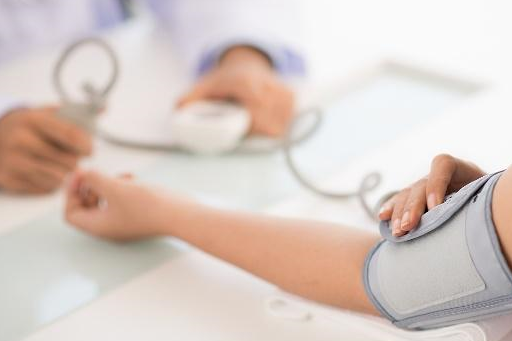Dog days are the hottest and most humid time of the year. Prolonged exposure to damp and hot environments can easily cause people’s emotions to fluctuate and increase the risk of stroke and heart attack. It is especially important for hypertensive patients to control their blood pressure and take care of their health in daily life.
Avoid strenuous exercise: Before blood pressure is well controlled, avoid vigorous exercise in the morning as it may accelerate heart rate and cause too much blood pressure fluctuation, which in turn may trigger cardiovascular risks. Hypertensive patients can engage in moderate exercise but should avoid peak blood pressure times and overly hot periods. Consider exercising in the early evening around six to seven o’clock, opting for moderate-intensity activities such as walking or practicing Tai Chi.
Avoid cold showers: In hot summers when people sweat profusely, showering with cold water may seem refreshing and can cool down the body. However, it is dangerous for hypertensive patients as sudden exposure to cold water can cause blood vessels to constrict, raising blood pressure and increasing the risk of blood clots, stroke, and heart attack. During summer showers, keep the water temperature around 40°C and avoid seeking too much coolness.
Avoid getting up too abruptly: Upon awakening in the morning, the body activates the sympathetic nervous system, which is the peak time for blood pressure to rise. Getting up too abruptly may strain the body, increasing the burden on the heart and leading to unnecessary accidents. Upon opening your eyes in the morning, gently stretch or wiggle your fingers and toes before slowly getting out of bed.
Avoid high-salt diet: It is well known that a high-salt diet is a major factor causing high blood pressure. In summer, with increased sweating, it may be necessary to replenish salt to support the body’s function. However, daily salt intake should not exceed 6 grams. For those with edema or persistent hypertension, limit daily salt intake to 3 grams and be cautious of hidden salts in foods such as soy sauce and processed snacks.
Avoid excessively oily foods: Avoid consuming high-fat and high-sugar foods, as unutilized sugars can be converted to fat, accumulating in the body and raising serum triglycerides, increasing blood viscosity and hindering diastolic pressure improvement. Focus on a low-fat, low-sugar diet. Additionally, avoid seeking too much coolness, as consuming undercooked or cold foods in large quantities can stimulate the gastrointestinal tract and blood vessels, raising blood pressure and increasing the risk of cardiovascular issues.


